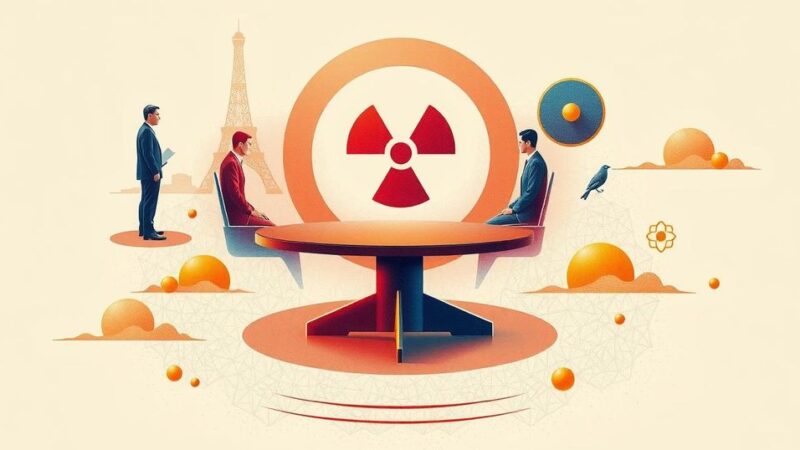The United States plans to utilize Israel’s offensive against Hezbollah in Lebanon to challenge the organization’s dominance and instigate political reforms, including the election of a new president. Although Saudi Arabia supports this initiative, Egypt and Qatar have expressed concerns about its feasibility and the potential for renewed internal conflict within Lebanon.
The United States government is considering leveraging the ongoing military offensive by Israel against Hezbollah in Lebanon as a strategic opportunity to undermine the organization’s influence and reshape the political landscape of the country, according to a report from the Wall Street Journal. This initiative has garnered some support from U.S. regional ally Saudi Arabia, although other key Middle Eastern states, notably Egypt and Qatar, have expressed skepticism regarding its feasibility. U.S. Secretary of State Antony Blinken has engaged in discussions with leaders from Qatar, Egypt, and Saudi Arabia in a bid to garner support for a plan that seeks to enact significant political change in Lebanon, including the election of a new president. This initiative also involves U.S. special envoy Amos Hochstein, who is tasked with persuading Arab officials of the potential to redefine Lebanon’s political structure following years of stagnation. Furthermore, U.S. State Department spokesman Matthew Miller articulated the administration’s goal to liberate Lebanon from what he termed Hezbollah’s “stranglehold” and eliminate the group’s veto power over presidential elections. In contrast, political leaders from Egypt and Qatar have voiced doubts, asserting that the destruction of Hezbollah is unlikely and that the group must remain a participant in any political resolutions to the ongoing conflict. Egypt has additionally raised concerns that external interventions could rekindle internal strife dating back to the Lebanese Civil War. Political analysts caution that any factions perceived as attempting to seize control amidst Israel’s offensive may face strong backlash from the Lebanese populace. The success of the U.S. plan hinges on the endorsement of prominent Lebanese figures, such as Prime Minister Najib Mikati and Parliament Speaker Nabih Berri, both of whom have indicated support for new presidential elections while simultaneously recognizing Hezbollah’s resistance against Israel. Hezbollah’s Deputy Secretary-General Naim Qassem has dismissed any political alterations proposed, asserting that the ongoing confrontation with Israel precludes such changes. The U.S. has historically faced challenges in effecting political reform in Lebanon, as the nation remains deeply fragmented along sectarian lines. There is a prevailing sense of pessimism among political officials regarding any possibility of meaningful change, with some officials lamenting the absence of any actionable leadership capable of guiding the country towards stability.
The ongoing conflict involving Hezbollah in Lebanon and the U.S. strategy to support Israel’s military actions against the group reflects a complex geopolitical landscape. Traditionally, Hezbollah has held significant influence in Lebanese politics, complicating the United States’ attempts to foster reform and stabilize the region. The longstanding division within Lebanese society along sectarian lines further impedes progress toward cohesive governance and political unity. Moreover, the region’s historical animosities and recent conflicts contribute to the heightened skepticism from neighboring nations regarding the viability of the U.S. strategy.
In summary, the United States aims to exploit Israel’s military operations against Hezbollah as a means to instigate political reform in Lebanon and diminish Hezbollah’s dominance. While the initiative has received backing from Saudi Arabia, skepticism from Egypt and Qatar underscores the potential pitfalls of external intervention. The fragile state of Lebanese politics, characterized by deep-seated divisions and a history of conflict, raises critical questions about the practicability of the proposed changes and the necessity of involving Hezbollah in any future political arrangements.
Original Source: www.haaretz.com






